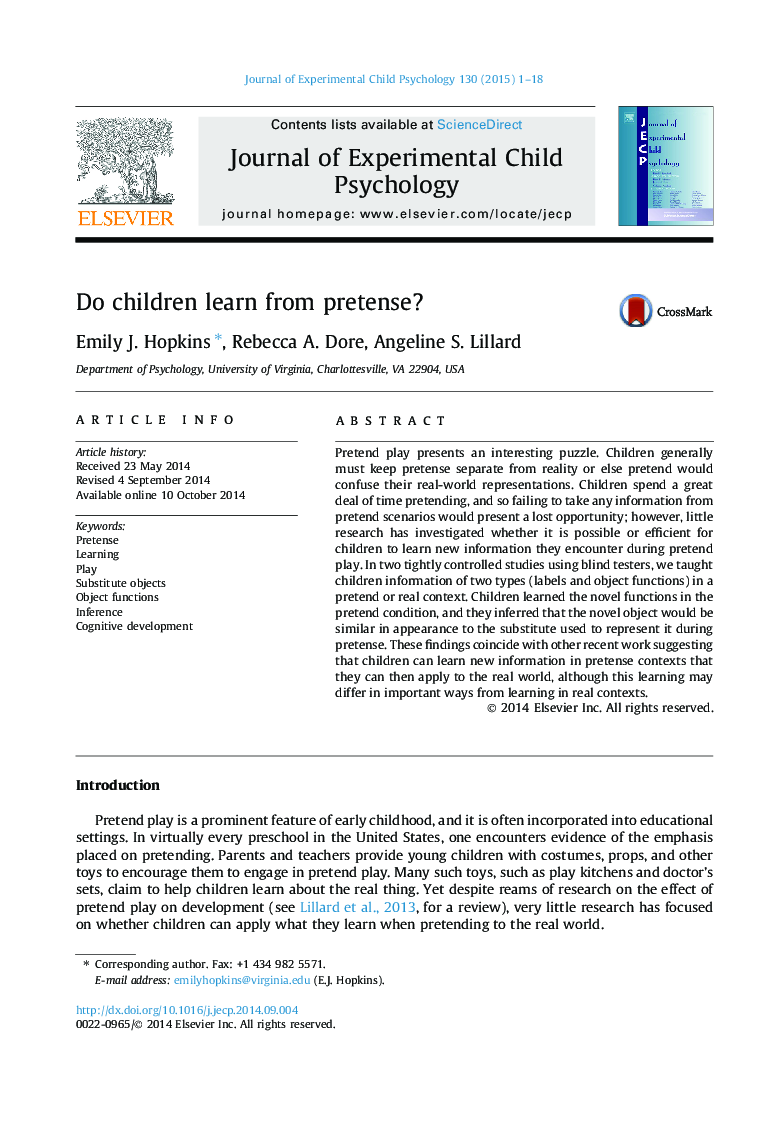| کد مقاله | کد نشریه | سال انتشار | مقاله انگلیسی | نسخه تمام متن |
|---|---|---|---|---|
| 917998 | 1473482 | 2015 | 18 صفحه PDF | دانلود رایگان |
• We investigated whether children can learn novel information during pretense.
• Children were taught novel object labels and functions in a pretend or real context.
• Children did learn novel object labels and functions taught during pretense.
• They inferred that novel objects would be similar in shape to pretend substitutes.
• They did not generalize labels learned in a real context to other similar objects.
Pretend play presents an interesting puzzle. Children generally must keep pretense separate from reality or else pretend would confuse their real-world representations. Children spend a great deal of time pretending, and so failing to take any information from pretend scenarios would present a lost opportunity; however, little research has investigated whether it is possible or efficient for children to learn new information they encounter during pretend play. In two tightly controlled studies using blind testers, we taught children information of two types (labels and object functions) in a pretend or real context. Children learned the novel functions in the pretend condition, and they inferred that the novel object would be similar in appearance to the substitute used to represent it during pretense. These findings coincide with other recent work suggesting that children can learn new information in pretense contexts that they can then apply to the real world, although this learning may differ in important ways from learning in real contexts.
Journal: Journal of Experimental Child Psychology - Volume 130, February 2015, Pages 1–18
